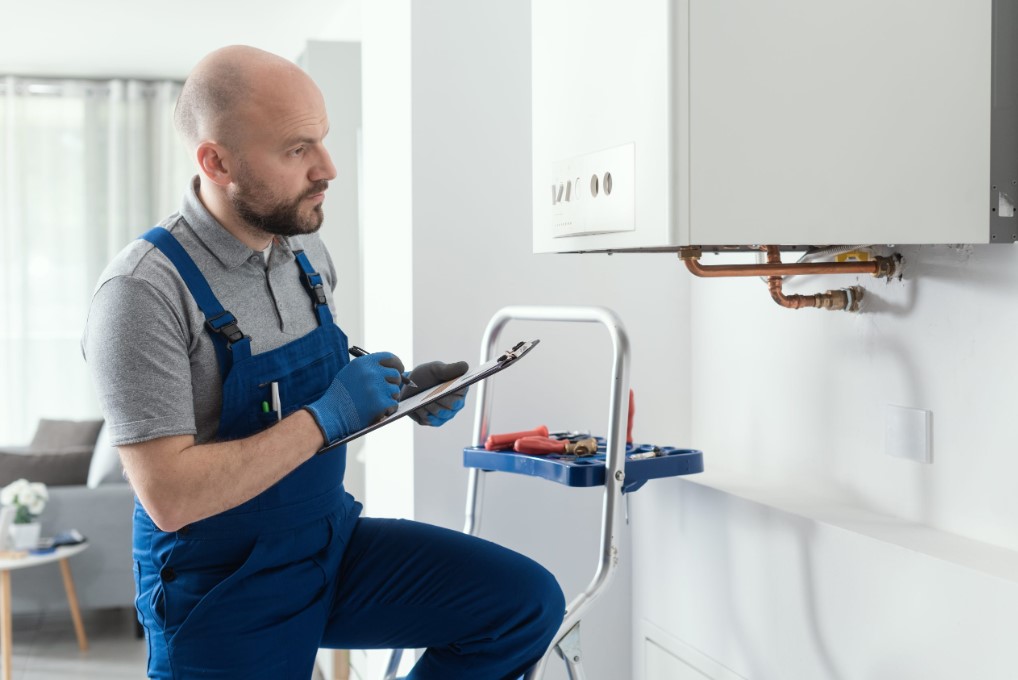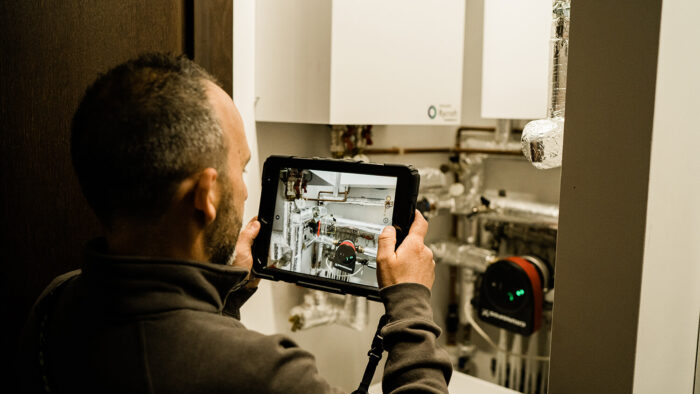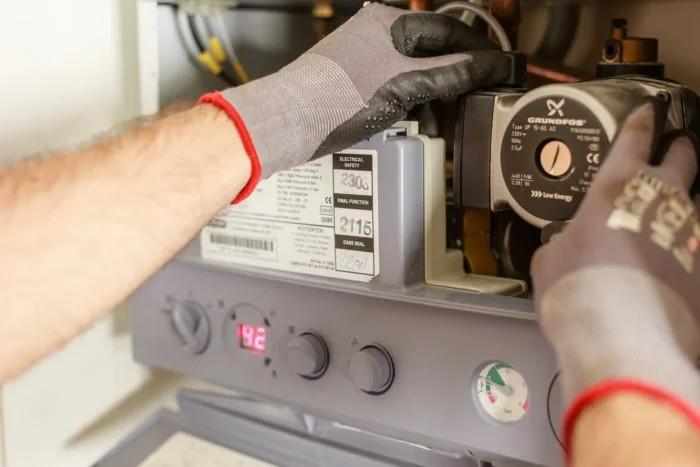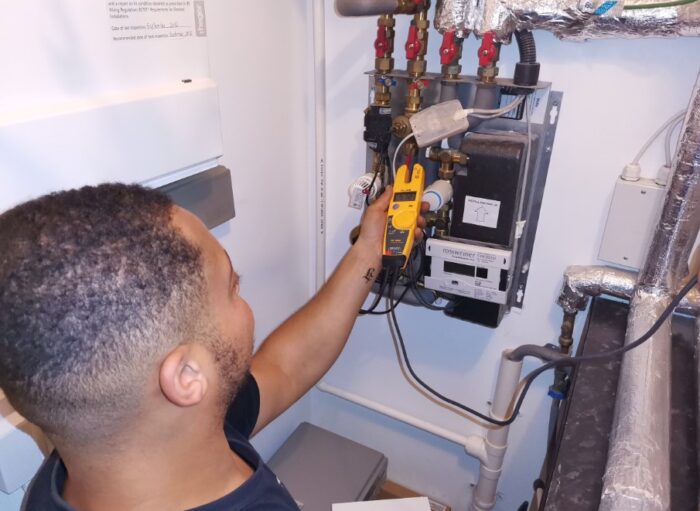
Heating Interface Units (HIUs) play a crucial role in many homes and buildings. They act as the main link between the central heating source and individual units. Proper maintenance of your HIU ensures that your heating system works efficiently, keeps energy costs low, and prevents potential breakdowns.
Regular HIU checks are more than just a precaution. They keep your unit running smoothly, save you money, and extend its lifespan.
The following guide provides a timeline on when to service your HIU, highlighting key stages where servicing is essential.
Key Points:
- Regular HIU checks save you money.
- Neglect leads to more expensive repairs.
- Routine servicing extends HIU lifespan.
- Consistent heating requires maintenance.
- Scheduling HIU inspections prevents breakdowns.
Early Signs of HIU Issues

Over time, your HIU may show signs of wear or reduced efficiency. The most obvious sign is inconsistent heating. You may notice that your home takes longer to heat or the temperature fluctuates. Water pressure may also drop, leading to poor hot water supply.
If you encounter these problems, it may be time for HIU repair. Professionals can diagnose the problem quickly, resolving issues before they turn into costly repairs. Find reliable experts at R&B London HIU Engineers Limited for complete repair solutions.
1-2 Years ─ First Service
Most HIU manufacturers recommend the first service after one to two years. At this stage, the HIU is still relatively new, but components may have started to experience minor wear. The purpose of this first service is to inspect key parts of the unit, such as heat exchangers, pumps, and valves. Any signs of blockages or corrosion should be addressed immediately. Even if the unit seems to work fine, this inspection can prevent hidden issues.
3-5 Years ─ Routine Maintenance

After the first service, HIU maintenance should become a routine part of your home care. It’s wise to schedule an annual checkup at this point. During this period, professionals will ensure that the heating system remains in optimal condition. They will check for leaks, test the efficiency of the unit, and clean any buildup in the system. These simple actions can significantly extend the lifespan of the HIU.
Also, an annual inspection can uncover any minor issues before they worsen. Common issues during this period include faulty valves or blockages. Fixing these early prevents damage to other components. It’s much easier to replace a small part than to deal with a full unit replacement.
6-10 Years ─ Midlife Tune-up
HIUs often last between 10-15 years. Around the six-year mark, more intensive checks may be required. This is when the HIU will need more attention, as parts will begin to wear down. Some components may need replacing to keep the system running efficiently. The pump, for example, may lose power over time, leading to less effective heating. A professional can evaluate whether parts like the heat exchanger need replacing.
A midlife tune-up is a chance to ensure that your HIU remains in optimal condition. Technicians will review energy efficiency, check for any corrosion, and replace aging parts. This tune-up prevents the need for a full replacement before the expected lifespan of the unit.
10+ Years ─ Potential Replacement
After a decade, your HIU will likely need major servicing or potential replacement. Most units reach their end of life around this time. Heating efficiency drops, parts may frequently break, and repairs become more costly. The heat exchanger may corrode, and valves may no longer work effectively. In many cases, replacing the HIU is the most cost-effective option.
Before replacement, a thorough inspection can reveal whether repairs are still an option. If the system is beyond repair, upgrading to a new HIU can restore efficiency. Newer models tend to be more energy-efficient, which can reduce heating bills significantly.
Consequences of Skipping HIU Servicing

Failing to stick to a proper servicing timeline results in several problems. First, energy bills increase because the system becomes less efficient. The HIU works harder to produce the same amount of heat, consuming more energy in the process. Second, skipping maintenance shortens the lifespan of the unit. Parts wear out faster without regular care, meaning you’ll have to replace the HIU sooner than expected.
Lastly, neglect leads to breakdowns. A sudden failure during the winter can leave your property without heating or hot water. Emergency repairs tend to be much more expensive than scheduled inspections. Avoid this by sticking to a regular servicing schedule.
Conclusion
Regular HIU servicing is essential to keep your heating system running efficiently. Following a proper servicing timeline prevents breakdowns, reduces energy bills, and extends the unit’s lifespan.
Sticking to the timeline saves money in the long term and ensures reliable heating for your property. Don’t wait for major problems to arise. Keep your HIU in top condition with regular servicing. For repairs and inspections, reach out to trusted professionals who specialize in HIU maintenance.














